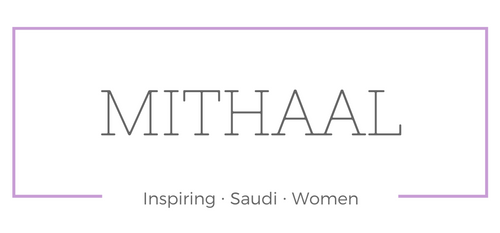On Creating Small- and Medium-Sized Enterprises
/
A design of a woman wearing a black head-to-toe abaya as she rides her bicycle down the street features on the embroidered border of Ayah Al Bitar’s new range of floor cushions. She likens it to a comic strip that tells “the story of the life of a Saudi woman”
Her stand displaying her home furnishings, shaped in the style of a bicycle seat, at Saudi Design Week in Riyadh in May, attracted crowds of potential buyers and supporters of her message. Transport is a central theme in her collection and a loaded topic in Saudi Arabia, where the mobility of women is often restricted. The kingdom only gave women the right to ride a bicycle in public three years ago.
But she is pushing boundaries in more ways than one. Bitar, 23, is among the growing number of Saudi women setting up small- and medium-sized enterprises. “I’m provoking thought through my work but also as the face of my brand,” she says.
From cupcake making to furniture shops, clothes boutiques and consultancies, Saudi businesswomen are becoming a growing public presence in Saudi society even as social norms often still dictate they should stay behind closed doors.
These women are often in the top echelons of society, highly educated and frequently wealthy. But their participation in Saudi society is often misunderstood in the West.
“This place is not just about the abaya and women not being able to drive,” says a female art gallery curator in Riyadh, dressed in an ebony cloak, tightly wrapped headscarf and silken gloves. “You have to look past the veils. We are doing a lot of interesting work.”
Opportunities in higher education at home and abroad, financial stability, familial encouragement, the easing of labour restrictions and social media are among factors that are bringing more women into the workforce and the business world.
Samar Nasraldin set up contemporary womenswear brand Atulier after returning home to the Red Sea Saudi port city of Jeddah from her studies in Paris. “Many people here think, ‘You’re wealthy — you don’t need to work,’” she says. “But I wanted to create something of my own, to leave a legacy.”
“The outside world doesn’t see it, but there has been major transformation in Saudi Arabia,” says Reem Asaad, a financial adviser who successfully led the campaign to substitute women for male shop assistants in lingerie and cosmetics stores. From opportunities in retail to advertising and IT, more sectors have opened up for women. Economic necessity for many low- and middle-income Saudi families has also been a catalyst.
“The impact has been big, even in the last two years alone. The mall I’m standing in now has a 60 per cent female workforce,” she says of the upscale Stars Avenue shopping complex in Jeddah. “Traditional value structures are being challenged,” she adds.
Spurring the rise of female entrepreneurs have been improved women’s education and programmes over the past decade under the late King Abdullah, who paid for thousands of young women to study abroad. Social media platforms such as Instagram and Facebook have driven the creation and promotion of enterprises women can operate from home. “The economic and social needs of millennial women are different to those of generations past,” Asaad says.
But much more work needs to be done in a country where women only recently won the right to vote and are not allowed to drive. While Saudi Arabia scored a near perfect equality score of 0.988 (out of 1) for educational attainment by both sexes, it fell to 0.27 for labour force participation, according to the World Economic Forum’s Gender Gap Index for 2015.
Maha Al Sudairi, who three years ago created Think Tank, a brand and product development business, says female-run businesses can create more jobs for women. She says her company employs a dozen Saudi women who did not have the opportunity she had to live and work abroad. “I also envision creating a crèche for women who want to work and have children,” she adds.
Gender segregation has created difficulties for female-run businesses, many of which would prefer to use female providers of legal, accounting and management advice, for example.
Seeing the opportunity, a group of investors, including women from prominent Saudi families, has set up Rasyah, a wealth management, business advisory and development group to target affluent Saudi women — a market it estimates at SR100bn ($27bn).
It is not just the younger generation that is branching out. Nicola Beer, a lifestyle coach in Dubai says several of her Saudi clients are setting up their own businesses later in life. “Often it is a result of divorce or [other] change in financial circumstances, or after their kids have grown up,” she says. “Many women have devoted their lives to their husbands and children. When they’re no longer there, they think, ‘Now it’s about me, what do I want to do?’”
After more than 30 years as a professor of biology in Riyadh, May Al Jaser set up a gelato shop in her 60s. “I thought I would retire and try something new. But this is anything but part-time — it’s a full time commitment,” she says.
She refused to operate the business with a male legal representative, she adds. “I did everything myself; I didn’t want to be behind the scenes. Going to the municipality for permits, the chamber of commerce, getting my equipment through customs at the airport — I went into all of these male-dominated areas. Even a decade ago I couldn’t have done this.”
Originally Published on Financial Times


